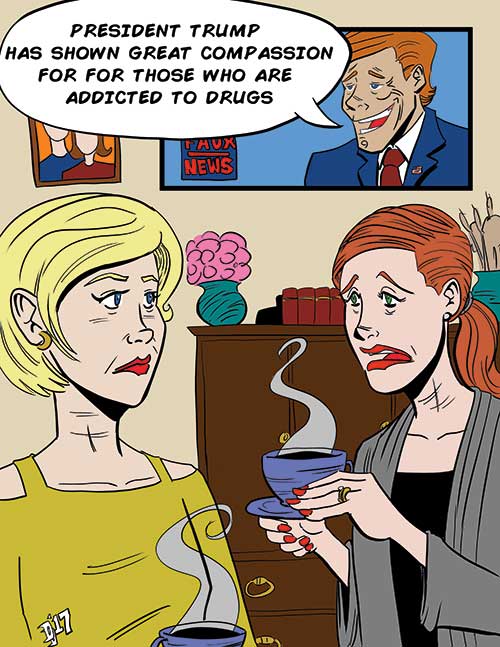
America has waged a war on drugs since 1970 that has cost almost $1 trillion. The cost for law enforcement in 2015 was $36 billion. Another estimated $40 billion is spent each year for incarcerating persons convicted of drug related crimes. Together that totals $76 billion, not including the social cost of imprisoning a family’s bread winner.
An objective analysis would have to conclude that America has lost the war on drugs. Yet in his remarks on the opioid crisis Trump seems not to have been told the news. His Attorney General Jeff Sessions has promised to escalate the campaign to arrest drug dealers, Trump has once again promised to build the wall to close off Mexico, and he promised a dynamic advertising campaign similar to Nancy Reagan’s flawed “Just Say No” to drugs campaign.
The major drug problem now is that an estimated two million Americans are addicted to prescription opioids. These drugs are not brought into the country over the Rio Grande. The Medicaid program of the Affordable Care Act now treats 30 percent of those addicted to opioids who are not elderly adults. Trump’s attack on Obamacare would end that service.
More than 33,000 people were killed by opioids in 2015. Projections are that more than 93,000 drug deaths could occur annually by 2027 if the problem is not resolved. The cost of continuing the present failing counterstrategies would be financially destabilizing.
Perhaps it is time to decriminalize drug addiction and treat addicts as medical patients. Portugal has demonstrated the benefits of this approach. It is much less expensive to treat addicts than to imprison them. There have already been some policy measures in this direction. With the high death rate from drug addiction in the U.S., a remedial policy is long overdue.






